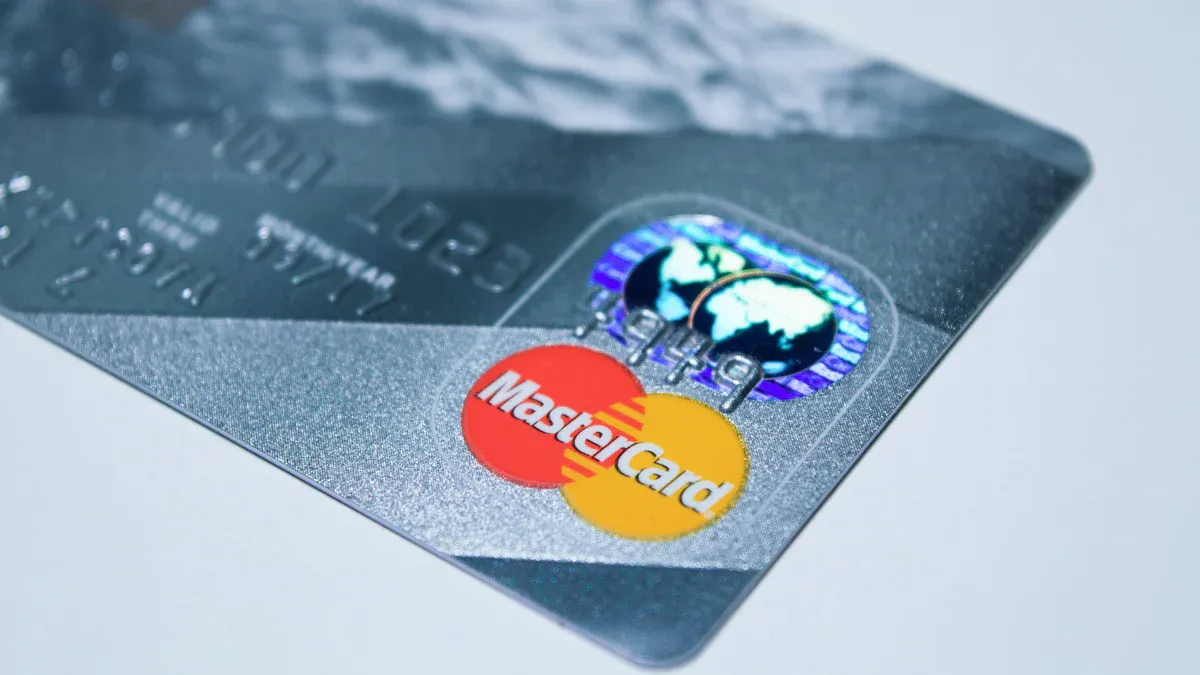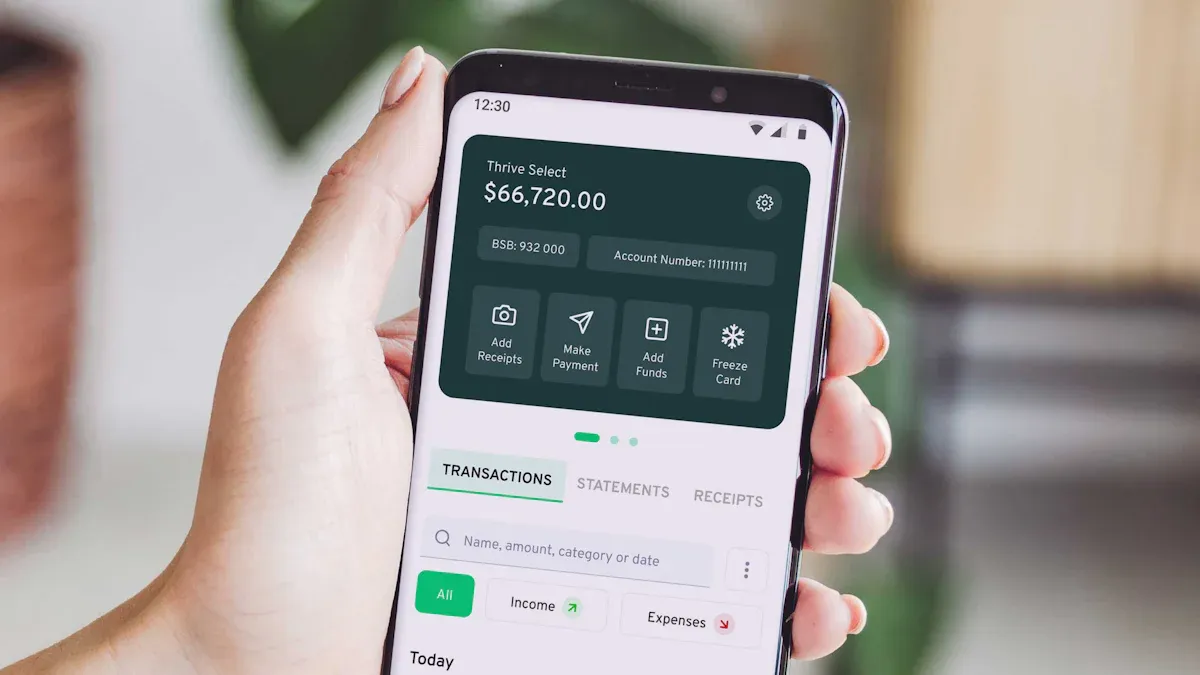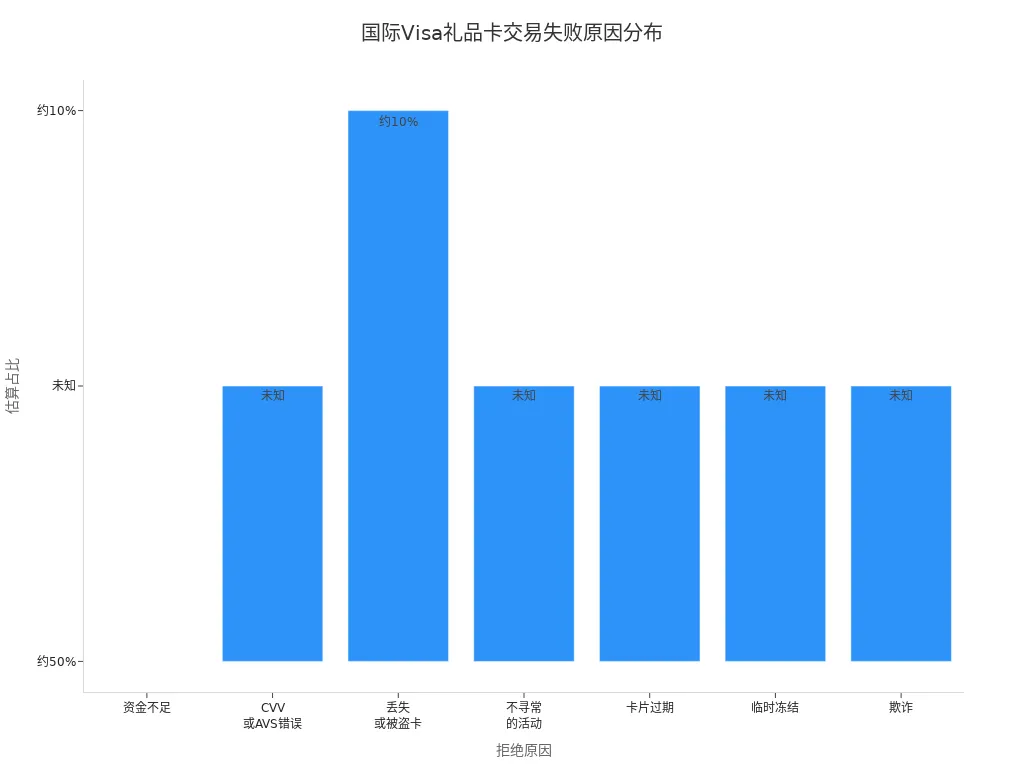- EasyCard
- Trade
- Help
- Announcement
- Academy
- SWIFT Code
- Iban Number
- Referral
- Customer Service
- Blog
- Creator
Guide to the International Use of Visa Gift Cards: Understanding Usage Restrictions and Fees

Image Source: pexels
When using a Visa gift card for international payments, you often encounter issues such as currency restrictions, foreign transaction fees, and exchange rate fluctuations. Foreign transaction fees can be as high as 3% per use, and some Visa gift cards issued in the U.S. cannot be used for online or phone transactions. Some prepaid cards may charge a monthly account maintenance fee of up to $10. You need to pay attention to the Visa gift card international usage guide, check your balance regularly, and understand the activation process to ensure smooth payments when shopping in mainland China or the U.S. market.
Key Points
- Before using a Visa gift card, confirm whether it is allowed in the destination country to avoid payment failures due to regional restrictions.
- Pay attention to foreign transaction fees and currency conversion fees, typically ranging from 1% to 3%, and ensure the card balance is sufficient to cover these fees.
- Before shopping, proactively confirm with merchants whether they accept Visa gift cards, especially at gas stations, hotels, and international e-commerce platforms.
- Regularly check the card balance to avoid transaction rejections due to insufficient funds, ensuring smooth payments.
- Monitor the card’s expiration date and use the balance in time to avoid financial losses due to expiration.
Visa Gift Card International Usage Guide and Applicability

Image Source: pexels
International Usage Conditions
When using a Visa gift card for international payments, you need to meet some basic conditions. The Visa gift card international usage guide recommends that you first confirm whether the card is allowed for use in mainland China or other countries. Most Visa gift cards are valid internationally, but some cards are labeled “valid only in (country),” meaning they can only be used in the country of purchase. You also need to comply with U.S. laws, including trade sanctions managed by the Office of Foreign Assets Control (OFAC). For example, countries like Iran, North Korea, and Syria prohibit or restrict Visa gift card transactions.
Tip: Before traveling abroad, you should carefully read the terms and conditions inside the card packaging to ensure the card is valid and not expired in the destination country.
Additionally, different countries’ currencies and exchange rates will affect your actual spending amount. You should pay attention to current exchange rate fluctuations before use to avoid insufficient balance due to rate changes. Each country’s laws and regulations regarding gift cards may also differ, so it’s advisable to research the destination country’s policies in advance.
Key International Usage Conditions
- Visa gift cards must be used within their validity period.
- They cannot be used in countries under U.S. sanctions.
- You must comply with the issuing institution’s international usage policies.
- Pay attention to currency exchange and transaction fees.
Supported Card Types
There are various types of Visa gift cards, and their international usage scope varies. You should consider the following when choosing:
- Some Visa gift cards are designed for international use and can be used globally.
- Some prepaid cards are limited to use in the country of purchase and cannot be used in mainland China or other countries.
- Virtual prepaid cards (such as some Visa e-cards) can be used in over 150 countries, suitable for cross-border online shopping.
- The issuing institution’s policies affect the card’s international usage permissions. You should contact the customer service number on the back of the card to confirm specific policies.
Note: When using a Visa gift card, you may incur currency exchange fees and international transaction fees. The Visa gift card international usage guide recommends understanding these fees in advance to avoid unnecessary losses.
Supported Countries
Visa gift cards can be used in most countries and regions, but the actual supported scope depends on the issuing institution and whether local merchants accept Visa payments. Before traveling or shopping, you can follow these steps to confirm whether the destination country supports Visa gift cards:
- Read the card’s terms and conditions to understand the international usage policy.
- Call the customer service number on the back of the card to inquire about specific country restrictions.
- Attempt a small payment on an international e-commerce website to test whether the card is accepted.
You should also note that some countries and regions (such as Iran, North Korea, and Syria) cannot use Visa gift cards due to policy restrictions. Most merchants in the U.S. market and mainland China support Visa payments, but you should confirm with the merchant in advance whether they accept Visa gift cards.
| Country/Region | Supports Visa Gift Card | Notes |
|---|---|---|
| United States | Supported | Confirm with merchant |
| Mainland China | Supported | Usable at some online and offline merchants |
| Hong Kong | Supported | More convenient to settle in USD |
| Iran, North Korea, Syria | Not Supported | Restricted by U.S. laws and sanctions |
| Most Other Countries | Supported | Pay attention to exchange rates and transaction fees |
Tip: The Visa gift card international usage guide reminds you to confirm the destination country’s policies and merchant support before traveling to avoid payment failures due to restrictions.
Usage Restrictions
Regional Restrictions
When using a Visa gift card for international payments, you should first pay attention to regional restrictions. Some countries and regions cannot use Visa gift cards due to policies, laws, or international sanctions. The Visa gift card international usage guide recommends checking whether the destination is restricted before traveling. The table below lists common restricted countries and regions:
| Restricted Countries/Regions |
|---|
| Belarus |
| Burundi |
| Central African Republic |
| China |
| Côte d’Ivoire |
| Cuba |
| Democratic Republic of the Congo |
| Egypt |
| Eritrea |
| Ethiopia |
| Guinea |
| Guinea-Bissau |
| India |
| Iran |
| Iraq |
| Laos |
| Lebanon |
| Liberia |
| Libya |
| Mali |
| Myanmar |
| Nicaragua |
| North Korea |
| Palestinian Territories |
| Russia |
| Somalia |
| South Africa |
| South Sudan |
| Sudan |
| Syria |
| Tunisia |
| Ukraine |
| Venezuela |
| Yemen |
| Zimbabwe |
Reminder: Before planning to use a Visa gift card, confirm whether the destination country is on the restricted list to avoid transaction failures.
Merchant Restrictions
When making actual purchases, you may encounter merchant restrictions. Some merchant types do not accept Visa gift cards, including some gas stations, hotels, car rental companies, and vending machines. Some licensed bank partner merchants in Hong Kong may only support physical cards or specific payment methods. When shopping in the U.S. market, it’s advisable to ask merchants in advance whether they accept Visa gift card payments. For online shopping, some international e-commerce platforms may reject Visa gift cards due to regional policies or technical reasons.
- Offline Merchants: Some gas stations, hotels, and car rental companies do not support.
- Online Merchants: Some international e-commerce platforms may refuse.
- Bank Partner Merchants: In Hong Kong, for example, some merchants only support physical cards.
Suggestion: Confirm with merchants before payment to avoid transaction failures due to restrictions.
Handling Insufficient Balance
When using a Visa gift card, you need to monitor the card balance at all times. Insufficient balance will lead to transaction rejections. Some merchants do not support split payments or allow combining multiple cards for payment. You can check your balance via the official website, customer service hotline, or bank self-service terminals. If the balance is insufficient, it’s recommended to choose goods or services below the balance or use another payment method to cover the difference.
- Inquiry Methods: Official website, customer service hotline, bank self-service terminals.
- Handling Methods: Choose items below the balance or cover the difference.
- Notes: Some merchants do not support split payments.
Tip: Check your balance before each purchase to ensure smooth payment completion.
Fee Explanation
When using a Visa gift card for international payments, you must pay attention to various fees. The Visa gift card international usage guide recommends understanding the fee structure in detail before transactions to avoid insufficient balance or payment failures due to fees. Below is a detailed explanation of common international usage fee types.
Foreign Transaction Fees
When using a Visa gift card for foreign currency payments in mainland China or the U.S. market, you are typically charged a foreign transaction fee. The fee standards vary by issuing institution. In most cases, foreign transaction fees are charged as a percentage of the transaction amount. Refer to the table below for the fee ranges of major issuing institutions:
| Fee Type | Fee Range |
|---|---|
| Foreign Transaction Fee | 1% to 3% |
For example, if you purchase goods in the U.S. market for 100 USD, you may be charged a foreign transaction fee of 1-3 USD. Some Visa gift cards issued by licensed banks in Hong Kong also charge similar fees. You should carefully read the card terms before the transaction to confirm the specific fee rate.
Tip: Foreign transaction fees are deducted directly from the card balance, so ensure you reserve sufficient balance before payment.
Currency Conversion Fees
In addition to foreign transaction fees, you may also need to pay currency conversion fees during cross-border payments. The currency conversion fee for Visa gift cards varies by issuing bank. Some licensed banks in Hong Kong charge a 1% international cross-currency transaction fee and a 0.8% USD transaction fee. Other prepaid cards and credit cards have different fee structures, typically ranging from 1-3%. Some banks may absorb part of the international transaction fees to reduce your burden.
| Card Type | Foreign Transaction Fee |
|---|---|
| Visa Gift Card | Varies by issuing bank, e.g., Central Bank charges 1% international cross-currency fee and 0.8% USD fee |
| Other Prepaid Cards | Fee structure may vary, typically 1-3% |
| Credit Cards | International transaction fees typically below 1%, some banks absorb this fee |
- Foreign transaction fees for Visa gift cards vary by issuing bank.
- Other prepaid cards and credit cards may have different fee structures, typically between 1-3%.
- Some banks may absorb international transaction fees.
When choosing a card, compare the currency conversion fees of different cards and select the product that best suits your needs.
Account Maintenance Fees
During the period you hold a Visa gift card, some issuing institutions may charge account maintenance fees. These fees are typically charged monthly and can be as high as 10 USD. When using the card internationally, some cards may charge an additional 2% of the transaction amount as a maintenance fee for international recipients. You can learn about account maintenance fees through the following methods:
- Foreign transaction fees are typically 2% of the transaction amount.
- This fee applies to purchases made by international recipients.
After activating the card, you should regularly check the account balance and monitor maintenance fee deductions to avoid balance reduction due to fees.
Exchange Rate Fluctuations
When making international payments, exchange rate fluctuations directly affect the final deduction amount. Visa gift cards are typically tied to a specific currency (e.g., USD). When used in mainland China or other countries, the system automatically converts the local currency to USD. If the local currency depreciates against the USD, the card’s value in the local currency increases; if it appreciates, the value decreases. Exchange rate fluctuations may also lead to increased foreign exchange transaction fees, further affecting your actual spending amount.
- When using a Visa gift card, the card is typically tied to USD.
- If the local currency depreciates against the USD, the card’s value in the local currency increases.
- Using a Visa gift card may incur foreign exchange transaction fees, which further affects the final charged amount.
Before transactions, you should monitor real-time exchange rates and plan your spending to avoid insufficient balance due to rate fluctuations.
Tip: The Visa gift card international usage guide recommends checking fee details and exchange rate changes before each international payment to ensure smooth completion.
Balance Inquiry and Activation

Image Source: unsplash
Balance Inquiry Methods
When using a Visa gift card in mainland China or the U.S. market, it’s crucial to stay updated on the card balance. Most Visa gift cards support online balance inquiries. You can follow these steps:
- Check the back of the card to find the dedicated inquiry URL.
- After accessing the URL, select the “Check Gift Card Balance” or “Transactions” option.
- Enter the 16-digit card number, expiration date, and 3-digit CVV2 code.
- Verify the information and click “Submit” to view the current balance.
Tip: When entering the card number, expiration date, and CVV2 code, ensure the information is accurate. Incorrect input may prevent the system from displaying the balance.
Some users may encounter the following issues when checking balances:
- Inaccurate information input, resulting in failure to check the balance.
- The card is limited to specific regions or retailers, and some inquiry pages may be inaccessible.
If you encounter issues, you can contact the customer service hotline on the back of the card for further assistance.
Card Activation Process
After receiving a Visa gift card, you must complete activation before using it in mainland China or other countries. The activation process typically includes the following steps:
- Confirm the issuing bank or brand information and understand the activation requirements.
- Visit the official activation page on the back of the card.
- Enter the card details, including the card number, expiration date, and CVV2 code.
- Follow the prompts to fill in optional billing information (e.g., recipient address).
- Verify all information and click “Confirm Activation.”
Common activation issues include:
- Inaccurate billing address, CVV, or expiration date input, leading to activation failure.
- The card is not activated, preventing payment completion.
- Some cards can only be activated in specific regions.
If you encounter difficulties during activation, contact the customer service of licensed banks in Hong Kong to ensure successful activation.
Usage in Different Countries and Currencies
Payment Process
When using a Visa gift card in different countries and currency environments, the payment process has slight variations. You need to choose the appropriate gift card type based on the recipient’s country. When purchasing a gift card, it’s recommended to use the recipient’s local currency to make it more convenient for them to redeem value. You simply select a prepaid card and load funds, and the recipient will receive an email to activate the card. When shopping in mainland China or the U.S. market, the process typically follows the same steps as local payments. You need to enter the card number, expiration date, and CVV2 code to complete the checkout. For international shopping, prioritize merchants that support Visa gift cards and confirm their policies in advance.
- When purchasing a gift card, use the recipient’s local currency.
- Select a prepaid card and load funds; the recipient activates the card via email.
- For international use, follow the same payment steps as in mainland China or the U.S. market.
Reasons for Transaction Failures
During international payments, you may encounter transaction failures. The most common reasons include insufficient funds, incorrect information input, or card expiration. Entering an incorrect CVV or billing address during checkout can also lead to rejections. In some cases, lost or stolen cards, unusual activity, temporary freezes, or fraud risks may affect transaction success rates. The table below summarizes the main reasons for rejections:
| Rejection Reason | Description |
|---|---|
| Insufficient Funds | If the cardholder lacks sufficient funds for the transaction, this is common, accounting for nearly half of all rejections. |
| CVV or AVS Error | Incorrect information, such as CVV or address mismatch, often occurs when the cardholder enters incorrect payment details at checkout. |
| Lost or Stolen Card | About one in ten rejected transactions is due to a lost or stolen card. |
| Unusual Activity | Transactions that deviate from the cardholder’s established purchasing habits, such as international or sudden purchases, may lead to rejection. |
| Card Expired | The cardholder may forget to update the card or not notice it has expired. |
| Temporary Freeze | A temporary freeze on the cardholder’s account for a specific amount can cause the seller to unknowingly hit the credit limit. |
| Fraud | If a transaction is rejected due to suspected fraud, the issuing bank typically requires measures to prevent scams. |

Before payment, verify the card information and balance to avoid transaction failures due to these reasons.
Confirming Details with Merchants
When shopping internationally, confirming transaction details with merchants in advance is crucial. You can ensure smooth transactions through the following methods:
- Confirm the merchant’s gift card acceptance policy.
- Inquire whether online transactions are supported.
- Confirm whether a minimum balance is required.
When shopping in mainland China or the U.S. market, proactively communicate with merchants to confirm whether they accept Visa gift card payments. Confirming these details in advance can effectively reduce the risk of transaction failures and enhance the payment experience.
Recharge Limits and Expiration
Recharge Limits
When using a Visa gift card, note that each card has a recharge limit. Most Visa gift cards are one-time prepaid cards and cannot be recharged. When purchasing, you can typically choose a recharge amount ranging from 25 USD to 500 USD. Visa gift cards issued by licensed banks in Hong Kong follow similar rules. When purchasing a gift card in the U.S. market, the recharge amount cannot exceed 500 USD. You cannot add funds to the card via cash, transfer, or other methods.
- Recharge Amount Range: 25 USD to 500 USD
- Recharge Method: One-time recharge at purchase
- Additional Recharge: Most gift cards do not support
Tip: When choosing a recharge amount, plan according to actual spending needs to avoid payment issues due to insufficient balance.
Validity Period and Expiration Handling
After receiving a Visa gift card, immediately check the expiration date on the front or back of the card. Visa gift cards typically have a validity period of 1 to 5 years, depending on the card’s marking. You need to use the card balance within the validity period. After expiration, the card becomes unusable, and all transactions will be rejected. The handling of remaining funds varies by local laws. In some cases, the balance may be forfeited or transferred to relevant government agencies per local regulations.
| Evidence Type | Content |
|---|---|
| Validity Period | The validity period of a Visa gift card is typically marked on the front or back; the card becomes invalid after expiration. |
| Handling Procedure | After expiration, all transactions are rejected, and remaining funds may be transferred to government agencies or forfeited per state laws. |
When using a Visa gift card in mainland China or the U.S. market, regularly monitor the card’s expiration date. Use the balance before expiration to avoid financial losses. If the card is nearing expiration, plan your spending in advance or contact the issuing bank to check for balance handling options.
Tip: When using a Visa gift card, pay attention to the expiration date to avoid unusable balances due to expiration.
Supported Countries and Alternatives
How to Confirm Supported Countries
When planning to use a Visa gift card for international payments, you must confirm whether the destination country supports the card. You can quickly verify through the following methods:
- Check the terms and conditions on the back of the card. Issuing institutions typically specify supported countries and regions.
- Call the customer service hotline on the back of the card to directly inquire about the latest supported country list.
- Visit the issuing institution’s official website and check the FAQ or Help Center for relevant information.
- Attempt a small payment on an international e-commerce platform to test whether the card is accepted, avoiding large transaction failures.
Tip: When using a Visa gift card in mainland China or the U.S. market, prioritize merchants that support Visa payments. Some gift cards issued by licensed banks in Hong Kong have broader support, but you should still confirm specific policies in advance.
The table below shows common verification channels:
| Verification Method | Applicable Scenario | Advantages |
|---|---|---|
| Terms and Conditions | All Countries | Authoritative Information |
| Customer Service Hotline | Mainland China/U.S. Market | Timely Response |
| Official Website | Global | Frequent Updates |
| Small Payment Test | International E-commerce Platforms | Practical and Intuitive |
Alternative Payment Methods
If you find that a Visa gift card cannot be used in certain countries or merchants, you can opt for other payment methods. Consider the following common alternatives:
- Use an international credit card. When shopping in the U.S. market, international credit cards have wide support and high transaction security.
- Choose third-party payment platforms like PayPal. For shopping in mainland China or cross-border e-commerce platforms, PayPal supports multi-currency settlements, making it convenient and fast.
- Use local prepaid cards. Some licensed banks in Hong Kong offer multi-currency prepaid cards, suitable for frequent international spending.
- Cash payments. For some offline merchants, cash remains the most direct payment method.
Suggestion: When choosing alternative payment methods, prioritize safety and convenience based on the actual spending scenario. Prepare multiple payment tools in advance to ensure smooth international shopping.
When traveling or shopping internationally, flexibly selecting the appropriate payment method can effectively enhance the spending experience and avoid disruptions due to payment restrictions.
When using a Visa gift card internationally, pay attention to the following key points:
- Some cards are only valid in the issuing country, so carefully read the agreement before use.
- International transactions may incur foreign transaction fees of 1% to 3%, and exchange rate fluctuations will affect the actual deduction amount.
- Some merchants may not accept Visa gift cards, so confirm in advance.
- The card has a limited validity period, and the balance should be checked and used promptly.
Ensure the card is activated, protect card information security, and understand all fee terms. Choosing the appropriate payment method based on actual needs can enhance your international spending experience.
FAQ
Can Visa gift cards be used in mainland China?
You can use Visa gift cards at some merchants in mainland China. You need to confirm in advance whether the merchant supports Visa payments. Some online platforms also accept Visa gift cards.
How to check the Visa gift card balance?
You can visit the official website on the back of the card. After entering the card number, expiration date, and CVV2 code, the system will display the balance. You can also call the customer service hotline to inquire.
What fees are charged when using a Visa gift card in the U.S. market?
When using a Visa gift card in the U.S. market, you are typically charged a foreign transaction fee of 1% to 3%. Some cards may also have account maintenance fees, subject to the issuing institution’s terms.
What happens to the balance after a Visa gift card expires?
You need to use the balance within the card’s validity period. After expiration, all transactions will be rejected. Remaining funds may be handled per local laws, so it’s recommended to spend in advance.
What should I do if a transaction fails?
First, check the card balance and information for accuracy. You can also contact the issuing institution’s customer service to understand the reason for the failure. Some merchants do not support Visa gift card payments, so try alternative payment methods.
Visa gift cards enable international payments at most merchants worldwide, but 1%-3% foreign transaction fees, regional restrictions (e.g., no support in Iran/North Korea), and expired balance risks can add costs, especially in 2025’s projected $1+ trillion prepaid card market, where traditional methods’ rate fluctuations and merchant compatibility issues create hurdles. For a cost-effective, seamless cross-border solution, explore BiyaPay. With remittance fees as low as 0.5%, BiyaPay ensures maximum recipient value with full transparency.
BiyaPay serves most countries and regions, with registration in minutes and same-day delivery, no complex checks required. Plus, trade stocks in US and Hong Kong markets without an overseas account, featuring zero fees on contract orders. Sign up today and use the real-time exchange rate tool to monitor current rates, optimizing your transfer timing for a secure, budget-savvy global finance experience.
*This article is provided for general information purposes and does not constitute legal, tax or other professional advice from BiyaPay or its subsidiaries and its affiliates, and it is not intended as a substitute for obtaining advice from a financial advisor or any other professional.
We make no representations, warranties or warranties, express or implied, as to the accuracy, completeness or timeliness of the contents of this publication.




Contact Us
Company and Team
BiyaPay Products
Customer Services
is a broker-dealer registered with the U.S. Securities and Exchange Commission (SEC) (No.: 802-127417), member of the Financial Industry Regulatory Authority (FINRA) (CRD: 325027), member of the Securities Investor Protection Corporation (SIPC), and regulated by FINRA and SEC.
registered with the US Financial Crimes Enforcement Network (FinCEN), as a Money Services Business (MSB), registration number: 31000218637349, and regulated by FinCEN.
registered as Financial Service Provider (FSP number: FSP1007221) in New Zealand, and is a member of the Financial Dispute Resolution Scheme, a New Zealand independent dispute resolution service provider.



















